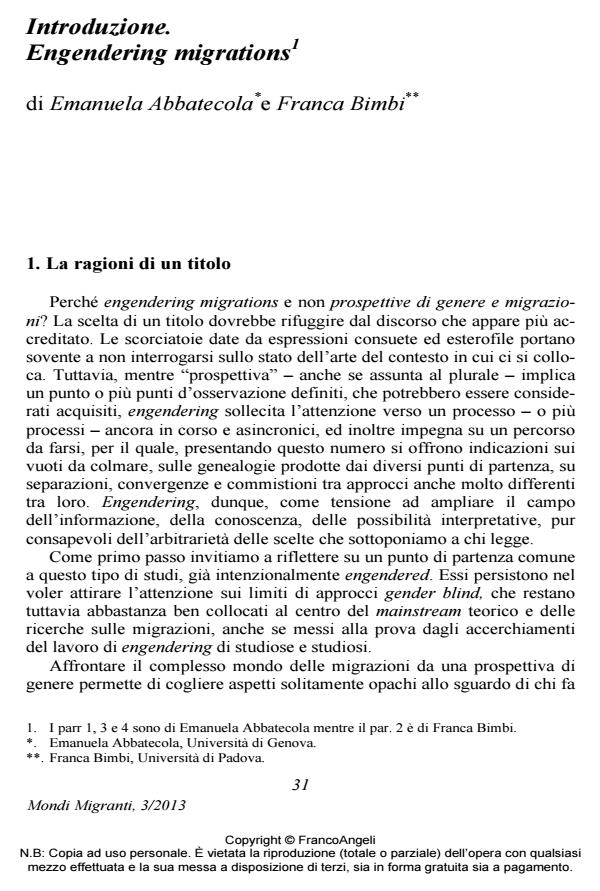Introduzione. Engendering migrations
Titolo Rivista MONDI MIGRANTI
Autori/Curatori Emanuela Abbatecola, Franca Bimbi
Anno di pubblicazione 2014 Fascicolo 2013/3
Lingua Italiano Numero pagine 17 P. 31-47 Dimensione file 661 KB
DOI 10.3280/MM2013-003002
Il DOI è il codice a barre della proprietà intellettuale: per saperne di più
clicca qui
Qui sotto puoi vedere in anteprima la prima pagina di questo articolo.
Se questo articolo ti interessa, lo puoi acquistare (e scaricare in formato pdf) seguendo le facili indicazioni per acquistare il download credit. Acquista Download Credits per scaricare questo Articolo in formato PDF

FrancoAngeli è membro della Publishers International Linking Association, Inc (PILA)associazione indipendente e non profit per facilitare (attraverso i servizi tecnologici implementati da CrossRef.org) l’accesso degli studiosi ai contenuti digitali nelle pubblicazioni professionali e scientifiche
- Richiedenti asilo e rifugiate nello Sprar. Contraddizioni nel sistema d'accoglienza Pamela Pasian, Angela Maria Toffanin, in MONDI MIGRANTI 1/2018 pp.127
DOI: 10.3280/MM2018-001007 - Recensioni in MONDI MIGRANTI 3/2018 pp.161
DOI: 10.3280/MM2018-003009 - Commensality as citizenship. An Ethnographic Journey through Food and Migration Franca Bimbi, Paolo Gusmeroli, in MONDI MIGRANTI 2/2021 pp.27
DOI: 10.3280/MM2021-002002
Emanuela Abbatecola, Franca Bimbi, Introduzione. Engendering migrations in "MONDI MIGRANTI" 3/2013, pp 31-47, DOI: 10.3280/MM2013-003002